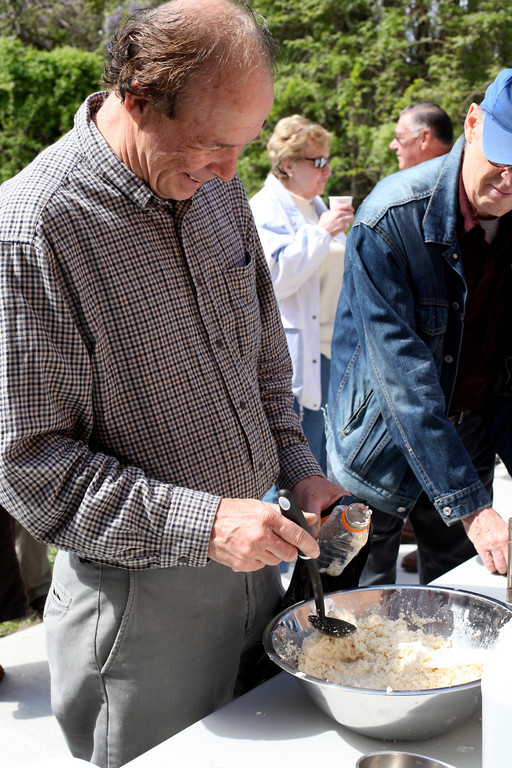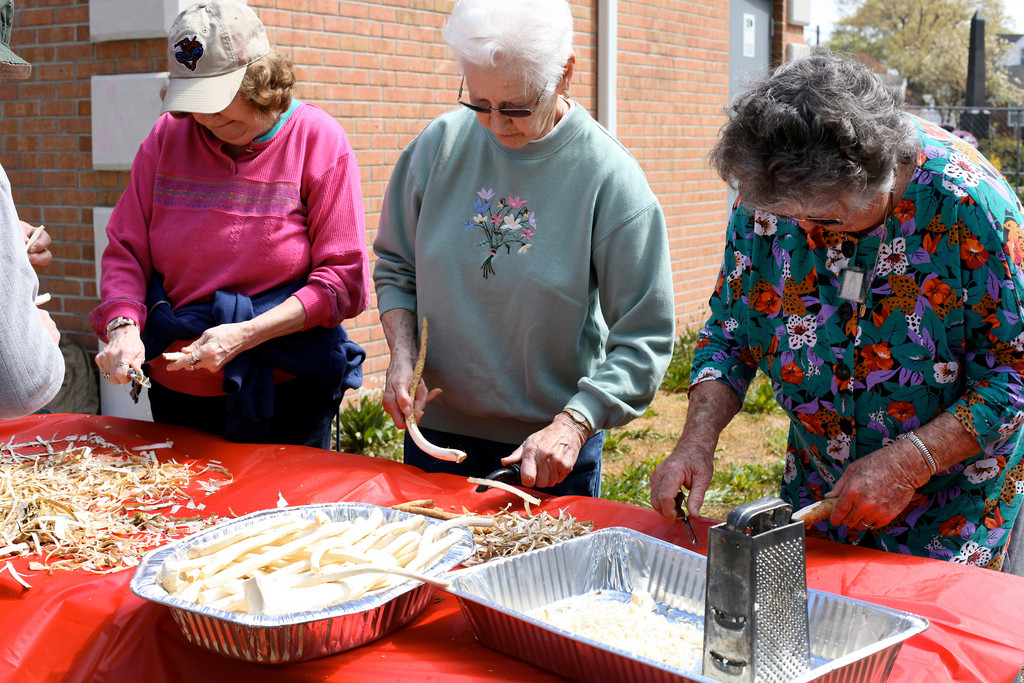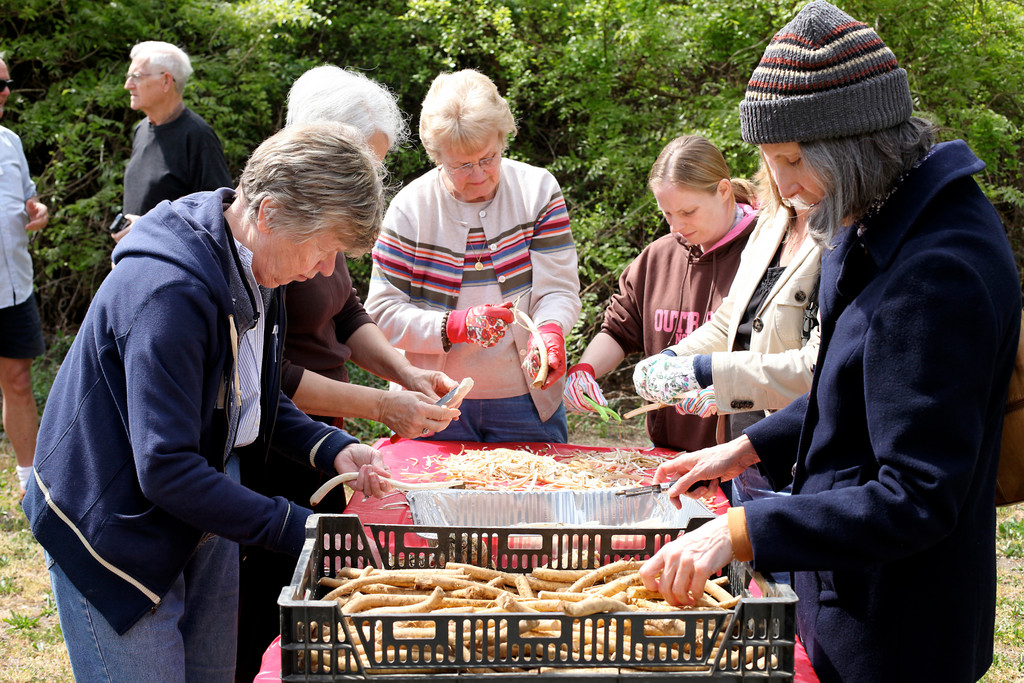A German tradition in Franklin Square
Fifty local residents attended a horseradish-sauce demonstration on April 21 at the Franklin Square Museum, located on Naples Avenue in Franklin Square. The event was sponsored by the Franklin Square Historical Society, and organized by the Fosters Meadow Heritage Center.
According to Raymond Hoeffner, a member of the Historical Society, who helped organize the event, attendees were all descendants of Fosters Meadow, a German farming community that was founded in the 1850s, and encompassed portions of several communities that we know today, including Elmont, North Valley Stream, Valley Stream, Floral Park, Franklin Square, Cambria Heights, Springfield and Towns of Jamaica.
Fosters Meadow was an agricultural area, populated by German immigrants who transported produce to New York City markets — first by horse and wagon, and then by market trucks.
According to Hoeffner, farmers of Fosters Meadow regularly cultivated horseradish in April and sold it at NYC markets. Horseradish sauce was popular among Jewish families, in the celebration of Passover in April (horseradish is a traditional part of the seder plate).
When Fosters Meadow residents made horseradish, they did so on dirt floors in their barns, and with no electricity, Hoeffner added.
During the event last Saturday, hand-grinders and potato peelers were used to peel horseradishes — the method used by German immigrants living in Fosters Meadow in the 1800s.
According to Hoeffner, German descendants who attended the event last Saturday included the Barb, Becker, Dubon, Felten, Froehlich, Gattung, Haverkamp, Hartmann, Herman, Hoeffner, Hoffman, Kapplemeier, Kiesel, Kollmer, Kraus, Kreischer, Krumenacker (and those with mm) Jacobs, Lang, March, Meyer, Reisert, Rottkamp, Sappelt, Schmitt, Stattel and Wulforst families.
For more information on the history of Fosters Meadow, visit the Fosters Meadow Heritage Center blog.
To view all of our photos from the horseradish demonstration, click here.











